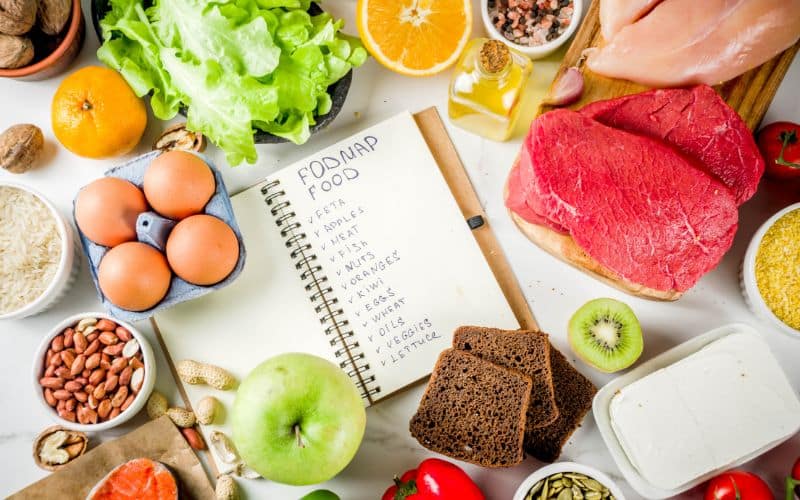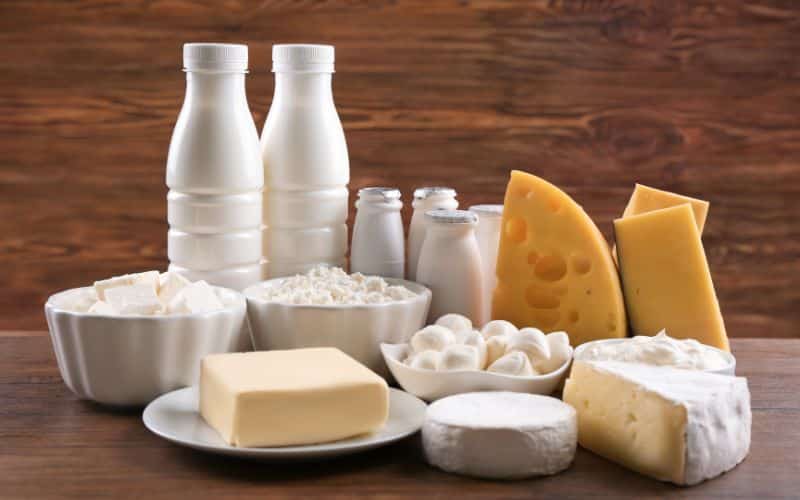People with Irritable Bowel Syndrome (IBS) often experience a range of symptoms, including abdominal pain, bloating, and changes in bowel habits. While there is no cure for IBS, certain dietary changes can help manage symptoms and improve quality of life. However, with so many different diets and approaches claiming to be the best for IBS, it can be challenging to know which one to follow.
Research suggests that there is no one-size-fits-all approach when it comes to the best diet for IBS. Instead, it is important to identify which foods trigger symptoms in each individual and tailor the diet accordingly. This may involve avoiding certain foods or food groups, increasing fiber intake, or following a low FODMAP diet. A low FODMAP diet involves avoiding certain types of carbohydrates that are poorly absorbed by the small intestine, which can lead to symptoms such as bloating, gas, and diarrhea.
If you have been diagnosed with IBS or suspect that you may have it, it is important to work with a healthcare provider or registered dietitian to develop a personalized nutrition plan. They can help identify trigger foods, provide guidance on appropriate portion sizes and meal timing, and ensure that the diet is nutritionally balanced. By making dietary changes that work for your individual needs, you can better manage symptoms and improve your overall quality of life.
Contents
Understanding Irritable Bowel Syndrome

Irritable Bowel Syndrome (IBS) is a common digestive disorder that affects the large intestine. It is often characterized by a group of symptoms, including abdominal pain, bloating, gas, and changes in bowel habits such as diarrhea or constipation. The exact cause of IBS is not known, but it is believed to be caused by a combination of factors, including genetics, diet, stress, and changes in gut bacteria.
IBS is a chronic condition that can significantly impact a person's quality of life. It is estimated that up to 15% of the population worldwide suffers from IBS. Although there is no cure for IBS, there are several ways to manage the symptoms, including changes in diet and lifestyle.
The symptoms of IBS can vary from person to person, and they can be triggered by different factors. Some common triggers include certain foods, stress, hormonal changes, and infections. It is important to identify the triggers that affect you personally to manage your symptoms effectively.
In the next section, we will discuss the best diets for IBS that can help manage the symptoms and improve the quality of life for people with IBS.
Importance of Diet in Managing IBS
Diet plays a crucial role in managing the symptoms of Irritable Bowel Syndrome (IBS). While there is no one-size-fits-all diet for IBS, certain dietary changes can help alleviate symptoms and improve overall gut health. In this section, we will discuss the role of fiber and hydration in managing IBS.
Role of Fiber
Fiber is an important nutrient that promotes healthy digestion. It adds bulk to the stool, regulates bowel movements, and helps in the removal of waste from the body. However, for people with IBS, consuming too much fiber can trigger symptoms such as bloating, gas, and abdominal pain. On the other hand, consuming too little fiber can lead to constipation.
To strike a balance, it is recommended that people with IBS consume a moderate amount of fiber. Soluble fiber, found in foods such as oatmeal, bananas, and sweet potatoes, is particularly beneficial for people with IBS. It helps regulate bowel movements, reduces diarrhea, and eases constipation.
Hydration and IBS
Staying hydrated is essential for maintaining good digestive health. Dehydration can lead to constipation, which is a common symptom of IBS. Drinking enough water and other fluids can help prevent constipation and promote regular bowel movements.
It is recommended that people with IBS drink at least eight glasses of water per day. Other fluids such as herbal tea, coconut water, and vegetable juice can also help with hydration and provide additional health benefits.
In conclusion, maintaining a healthy diet is key to managing the symptoms of IBS. Consuming a moderate amount of fiber and staying hydrated can help alleviate symptoms and promote good digestive health. However, it is important to consult a healthcare professional before making any significant dietary changes.
Best Diet for IBS
If you have Irritable Bowel Syndrome (IBS), you know how important it is to follow a healthy diet that can help alleviate the symptoms. While there is no one-size-fits-all diet for IBS, certain diets have been found to be effective in reducing the symptoms of IBS. In this section, we will discuss some of the best diets for IBS.
Low-FODMAP Diet

One of the most popular diets for IBS is the low-FODMAP diet. FODMAPs are a type of carbohydrate that can be difficult to digest and can cause gas, bloating, and other digestive symptoms in people with IBS. The low-FODMAP diet involves avoiding foods high in FODMAPs for a period of time and then gradually reintroducing them to determine which ones trigger symptoms.
Foods that are low in FODMAPs include:
- Vegetables like eggplant, green beans, celery, carrots, spinach, sweet potato, yam, zucchini, and squash
- Herbs like basil, chili, coriander, ginger, lemongrass, marjoram, mint, oregano, parsley, rosemary, and thyme
- Fruits like bananas, blueberries, grapes, kiwi, oranges, pineapple, and strawberries
- Grains like rice, oats, and quinoa
- Proteins like chicken, beef, fish, and eggs
- Dairy products like lactose-free milk, hard cheeses, and butter
Gluten-Free Diet
Another diet that may be beneficial for people with IBS is a gluten-free diet. Gluten is a protein found in wheat, barley, and rye, and some people with IBS may have a sensitivity to it. A gluten-free diet involves avoiding foods that contain gluten and replacing them with gluten-free alternatives.
Foods that are gluten-free include:
- Fruits and vegetables
- Meat, poultry, and fish
- Dairy products
- Grains like rice, corn, and quinoa
- Gluten-free bread, pasta, and other products made with alternative flours like almond flour or coconut flour
High-Fiber Diet
A high-fiber diet can also be beneficial for people with IBS, as it can help regulate bowel movements and reduce constipation. However, it's important to note that not all types of fiber are created equal, and some types of fiber may actually worsen IBS symptoms. Soluble fiber, which dissolves in water and forms a gel-like substance in the intestines, is generally better tolerated than insoluble fiber.
Foods that are high in soluble fiber include:
- Oatmeal
- Barley
- Lentils
- Beans
- Apples
- Pears
- Berries
It's important to talk to your doctor or a registered dietitian before starting any new diet for IBS, as they can help you determine which diet is best for you and ensure that you are getting all the nutrients you need.
Foods to Avoid

If you have irritable bowel syndrome (IBS), some foods can trigger symptoms such as bloating, abdominal pain, and changes in bowel habits. Here are some foods to avoid if you have IBS:
- Dairy: Milk, cheese, and other dairy products contain lactose, which can be difficult to digest for some people with IBS. If you suspect that dairy is a problem for you, try switching to lactose-free dairy products or plant-based alternatives.
- Fried foods: Fried foods are high in fat, which can slow down digestion and worsen symptoms of IBS. Instead of fried foods, try grilling, baking, or steaming your food.
- Beans and legumes: Beans, lentils, and other legumes are high in fiber and can cause gas and bloating in some people with IBS. If you want to eat beans, try soaking them overnight and cooking them well to make them easier to digest.
- Caffeinated drinks: Caffeine can stimulate the digestive system and cause diarrhea, which can worsen symptoms of IBS. Avoid coffee, tea, and other caffeinated drinks if you find that they trigger your symptoms.
- Processed foods: Processed foods are often high in fat, sugar, and salt, which can irritate the digestive system and worsen symptoms of IBS. Try to eat more whole foods, such as fruits, vegetables, and whole grains.
- Sugar-free sweeteners: Sugar-free sweeteners such as sorbitol, xylitol, and mannitol can cause diarrhea and other digestive symptoms in some people with IBS. If you want a sweetener, try using small amounts of natural sweeteners such as honey or maple syrup.
- Chocolate: Chocolate contains caffeine and can also be high in fat, which can worsen symptoms of IBS. If you want a sweet treat, try eating a small amount of dark chocolate instead.
- Garlic and onions: Garlic and onions contain fructans, which are a type of carbohydrate that can be difficult to digest for some people with IBS. If you find that garlic and onions trigger your symptoms, try using other herbs and spices to flavor your food.
- Cruciferous vegetables: Vegetables such as broccoli, cauliflower, and cabbage are high in fiber and can cause gas and bloating in some people with IBS. If you want to eat these vegetables, try cooking them well and eating them in small amounts.
By avoiding these foods, you may be able to reduce your symptoms of IBS and improve your quality of life. However, it's important to remember that everyone's triggers are different, and what works for one person may not work for another. If you're not sure which foods are triggering your symptoms, consider keeping a food diary to track your symptoms and identify patterns.
Lifestyle Changes for Better IBS Management
In addition to dietary changes, lifestyle modifications can also help manage symptoms of irritable bowel syndrome (IBS). Here are some tips:
- Exercise regularly: Regular exercise can improve bowel function and reduce stress, which can trigger IBS symptoms. Aim for at least 30 minutes of moderate-intensity exercise, such as brisk walking, most days of the week.
- Manage stress: Stress can exacerbate IBS symptoms, so finding ways to manage stress is important. This can include practicing relaxation techniques, such as deep breathing or meditation, or engaging in activities that you enjoy.
- Get enough sleep: Poor sleep can also trigger IBS symptoms, so aim for at least 7-8 hours of sleep each night. Establishing a regular sleep routine can also be helpful.
- Stay hydrated: Drinking enough water can help prevent constipation, which is a common symptom of IBS. Aim for at least 8 cups of water per day.
- Avoid smoking: Smoking can irritate the digestive system and worsen IBS symptoms. If you smoke, consider quitting.
- Limit alcohol and caffeine: Both alcohol and caffeine can stimulate the digestive system and trigger IBS symptoms. Limit your intake of these substances or avoid them altogether.
By making these lifestyle changes, you may be able to better manage your IBS symptoms and improve your overall quality of life.
Consulting a Nutritionist or Dietician

If you are struggling with Irritable Bowel Syndrome (IBS), it is essential to consult a nutritionist or dietician to get a personalized diet plan. They can help you identify the trigger foods that cause your symptoms and suggest alternative foods that are safe to eat. A dietician or nutritionist can also provide you with guidance on portion sizes, meal timings, and hydration requirements.
During your consultation, the dietician or nutritionist will ask you about your medical history, symptoms, and dietary habits. They may also recommend some tests to rule out any underlying medical conditions that may be causing your symptoms. Once they have assessed your condition, they will create a diet plan that is tailored to your needs.
The diet plan may include foods that arelow in FODMAPs, which are short-chain carbohydrates that are poorly absorbed in the small intestine. These foods can trigger IBS symptoms in some people. The dietician or nutritionist may also suggest foods that are high in fiber, which can help regulate bowel movements and reduce constipation.
It is essential to follow the diet plan recommended by the dietician or nutritionist strictly. They may also recommend keeping a food diary to track your symptoms and identify any trigger foods that are not included in the diet plan. It is also important to communicate with your dietician or nutritionist regularly to make any necessary adjustments to the diet plan.
In conclusion, consulting a nutritionist or dietician is crucial for managing IBS symptoms through dietary changes. They can provide you with a personalized diet plan that is tailored to your needs and help you identify trigger foods that cause your symptoms. Following the diet plan strictly and keeping a food diary can help you track your symptoms and make any necessary adjustments to the diet plan.
Frequently Asked Questions
What are some good foods to eat for irritable bowels?
Foods that are high in fiber, such as fruits, vegetables, whole grains, and legumes, can be beneficial for people with irritable bowel syndrome (IBS). Soluble fiber, in particular, may help relieve symptoms of constipation. Good sources of soluble fiber include oats, barley, apples, pears, and beans.
What are the three worst foods for IBS?
The three worst foods for IBS are typically those that are high in fat, insoluble fiber, or FODMAPs (fermentable oligosaccharides, disaccharides, monosaccharides, and polyols). These foods can trigger symptoms such as bloating, gas, and diarrhea. Some common examples include fried foods, processed snacks, and cruciferous vegetables like broccoli and cauliflower.
What are the main foods to avoid with IBS?
In addition to the foods mentioned above, people with IBS may need to avoid certain other foods as well. These can include dairy products, caffeine, alcohol, and spicy foods. It is also important to avoid foods that are known to cause allergies or sensitivities.
What is an anti-inflammatory diet for IBS?
An anti-inflammatory diet for IBS typically involves eating foods that are high in antioxidants and anti-inflammatory compounds. This can include foods like leafy greens, berries, nuts, and fatty fish. It may also involve avoiding foods that are known to cause inflammation, such as processed meats and refined carbohydrates.
What is an IBS diet plan recommended by the NHS?
The NHS recommends a diet that is high in fiber and low in fat, particularly saturated fat. This can include foods like whole grains, fruits, vegetables, and lean protein sources like chicken and fish. It is also important to drink plenty of fluids and avoid caffeine and alcohol.
What are the ten worst foods for IBS?
The ten worst foods for IBS can vary from person to person, but some common culprits include:
- Fried foods
- Processed snacks
- Cruciferous vegetables
- Dairy products
- Caffeine
- Alcohol
- Spicy foods
- Processed meats
- Refined carbohydrates
- Artificial sweeteners
It is important to note that what works for one person with IBS may not work for another. It may be helpful to keep a food diary and work with a healthcare provider to identify trigger foods and develop a personalized diet plan.





